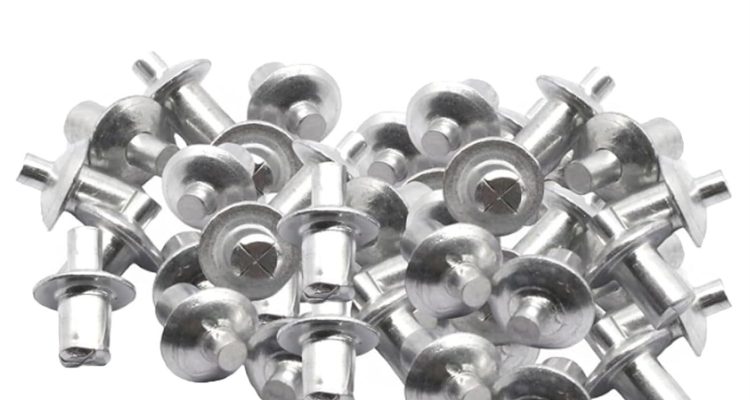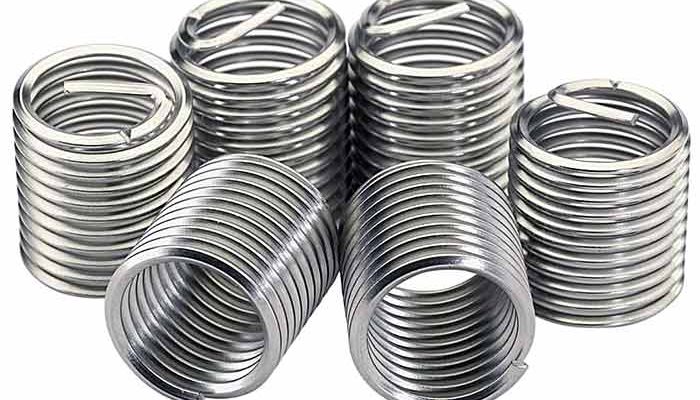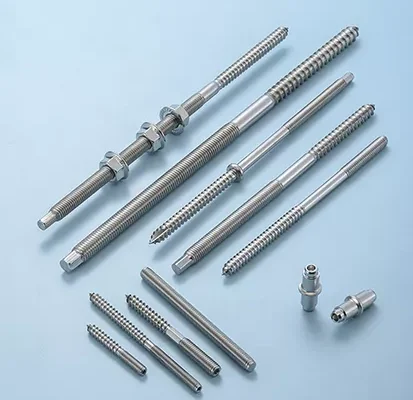
What Is A Double-Ended Bolt And Why Use It
Double-ended bolts are versatile, high-strength fasteners ideal for industrial, construction, and automotive applications, offering durability and corrosion resistance.
Introduction to Stud Bolts
Stud bolts – generally also referred to as double-ended studs – are uniquely configured for a wide array of applications. A stud bolt is threaded on both ends, which makes it basically a rod with threads in the middle; whereas an unthreaded portion provides more strength. They can thus be applied effectively in a variety of mechanical and structural needs. Stud bolts are commonly used in some applications to hold two flanges together or to a part of equipment where a separate bolt and nut are insufficient due to high temperatures.
Purpose and Utilization
Pipeline system is widely used as a conveying system for oil, gas, water, and so on. Stud bolts are one of the important parts in flange connection. These bolts are often used in such applications because they have a very good resistance to the pressure and force capable of taking place without failing in shape. This double-ended facility ensures a uniform distribution of the load for tightening nuts on both sides, so that there is no chance of leakage.
Technical Specifications
The class of stud bolts changes with corresponding sizes and diameters suitable for different pressures and mechanical requirements. The diameter can range from 1/4 inch to 4 inches (depends on the use) and the lengths might change according to what a specific project or application requires. The threading is the UTS ( UNified Thread Standard ) as well as metric thread standards so that you can meet any of your industrial requirements across the globe.
Material Choices
When it comes to stud bolts, the materials to be used should be determined depending on your environmental factors and mechanical specifications. Because of its strength and ductility, carbon steels are best used for general-purpose reasons. In extreme conditions such as high temperature or corrosive environments, stainless steel or other grades of alloy steel are used to provide better resistance. Another example being the use of a 304 stainless steel type due to its high resistance to oxidization and corrosion making it ideal for work in chemical processing plants.
Selection Criteria
For every application while choosing a stud bolt it should be based on environment, type of loading acting, access to the assembly for maintenance. The size of a bolt (length and diameter) must be selected to adequately meet the mechanical requirements of the joint and stand up to those loads without breaking. Moreover, the kind of thread as well as its dimension with the mating nuts and various other parts must be checked to avoid incompatibility causing failure of joint.
Installation Guidelines
Installation of stud bolts is the software designed to secure their application and moreover how long-life they are. The manufacturer specifies how much torque should be applied to the bolt and this value shouldn’t be surpassed, the bolt can also break if overstressed. Cleaning the threads and making sure that they are undamaged is also a must before the installation in order to avoid cross-threading or galling that compromised the joint. The rated torque must be used, and evenly applied in both directions of the bolt as well as in conjunction with a torque wrench to assemble a balanced and reliable bolt joint.
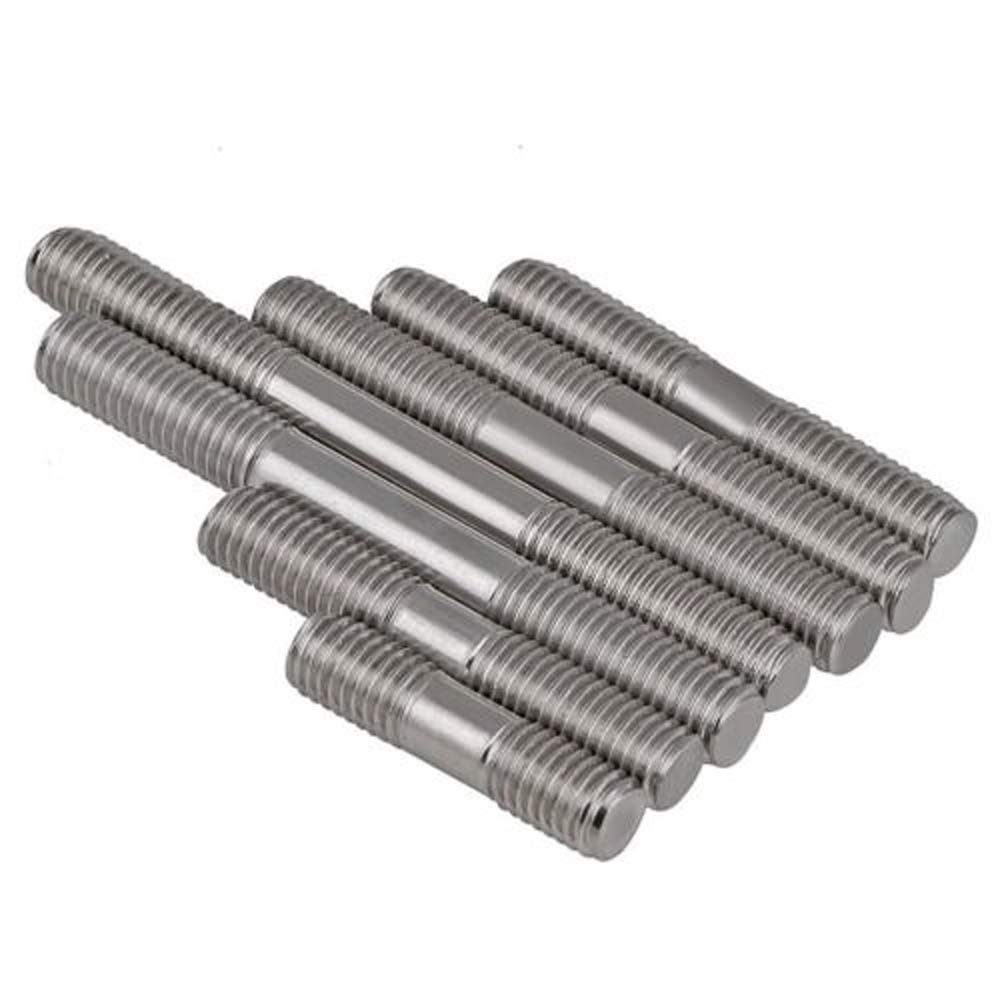
Features of Stud Bolts
Commonly used for high-pressure, tensile loads, stud bolt is a type of mechanical fastener that has threads on both ends and an unthreaded shank in the middle. By using this method a bolt is screwed into a tapped hole on the one end, after which a nut claps onto the other, holding the two together.
Design Characteristics
Lengths of stud bolts will range from 3 inches to 12 inches and diameters will range from 0.25 inches to 4 inches, respectively, but they can also be finished in size only perplusively for the application. This double-ended design grants maximum possible versatility, allowing one bolt to be used in place of two when a situation normally calls for it. It is especially helpful in flange connections of pipelines, heat exchangers and other important equipment which must be reliable connected.
Thread Types
Coarse threads and fine threads are the two main types of threads that can be used on stud bolts. Coarse threads are stronger and more durable, so they are great when faster assembly or disassembly is required. In contrast, fine threads are stronger and offer more precision which makes them better suited for high-load applications. Common specifications for bolts and nuts The choice of thread type will be determined by the demands of the application and the environment in which the bolt will be used.
In [1, 2] Methylene groups serve as halogen incorporation vessels Vinegar adds acidification and speeds up precipitation of additional Ilmenite retards iron dissolution High concentration hydrochloric slows or prevents precipitation Whitecaps do not reduce scaling concentrations Electro-chlorination should not increase scaling rates Source Legend.
Stud bolts are produced from a host of materials to cater to different environmental conditions and mechanical properties. They are available in general Carbon steel used in a variety of applications; for corrosion resistance, stainless steel is normally used; and heat resistant Alloy Steel is used when increased strength required at high temperatures. When it comes to businesses that process substances for which corrosion-resistant equipment is most critical; the choice of material often ends up being Hastelloy, Inconel and Monel due to their great advantages in terms of resistance against corrosion as they perform Batch Reactors or Continuous Process Systems with highly corrosive materials. Monel, for instance, has outstanding resistance to sea water, which is why it is a perfect metal for marine applications.
Coatings and Finishes
Stud bolts can be coated or plated with different materials in order to increase their corrosion resistance and lifespan. Zinc plating is employed for good rust resistance, cadmium plating provides superior corrosion resistance in a salt environment, and hot-dip galvanizing is thick protection for the outdoors. PTFE coating is also used when non-stick properties are necessary or to decrease the friction while tightening.
Specially built from the ground up
They can be customized for length, diameter, material and coating, to adapt stud bolts to different applications and conditions. This means they are very useful in the kinds of applications that demand a fastener that is able to withstand high pressures, temperatures or chemical exposure. In summary, longer bolts are required for thicker flanges or sections of equipment being joined and the shorter bolts are used in tight spaces where only a small bolt is needed-or when little space is available.
Materials Used for Stud Bolts
Stud bolts come in a variety of materials, with each material chosen due to its particular properties and fitness for specific environmental and mechanical stresses. The reason the material makes such a difference is because this will directly affect how strong the bolt is, how good it will be against corrosion, and how long the bolt will last.
Carbon Steel
Material: Stud bolts are usually manufactured by carbon steel which is the most common material regarding high strength as well as cost-effectiveness. It is usually utilized in the regular tasks where no corrosion elements or to very high temperatures. This kind of grade is used in industrial and moderate condition because of its strength at moderate temperatures giving approximately 125,000 PSI tensile and commonly known as ASTM A193 Grade B7.
Stainless Steel
In the case of corrosive environments, stainless is by far the most obvious choice due to its natural corrosion resistance properties. Common grades include 304 and 316 stainless steel, with the latter more desirable in very corrosive marine or chemical environments due to increased corrosion protection provided by its higher molybdenum content. In the above application, stainless steel stud bolts are required due to the harsh chemicals that are often used in chemical processing equipment.
Alloy Steel
Where greater high-temperature needs exist such as for alloy stud bolts. Grades of ASTM A193 Grade B16 are used for high temperature or high pressure applications like boiler and pressure vessels. Depending on the grade and heat treatment, bolts can have tensile strengths that exceed 125,000 PSI and are capable of withstanding temperatures up to 450°C.
Exotic Alloys
In extreme conditions, such as corrosive saltwater environments or highly acidic and alkaline exposure, we use exotic alloys like Hastelloy, Inconel, Monel and Titanium. These offer incredible power and resistance to corrosion and heat bye extension. For example, Inconel 625 is strong at cryogenic to 980°C which makes it well suited for applications in the aerospace industry for components.
Coatings and Platings
Aside from the foundation materials, stud bolts are frequently provided with surface treatment that permit them higher corrosion resistance or lower friction. Carbon steel bolts are typically zinc plated to prevent them from rusting, and in the case of bolts used in marine applications they would have excellent corrosion resistance properties by being cadmium plated. In the case of applications needing non-stick properties or lower friction, PTFE (Teflon) coating is applied that will also bring a layer of corrosion resistance.
Benefits of Using Stud Bolts
From construction to petrochemical processes, stud bolts offer numerous benefits making them an essential component in a variety of industrial applications. Their design and functionality also serve the mandatory purpose of supporting critical applications where reliability and security are essential.
Uniform Load Distribution
This is because stud bolts are built for use in high pressure and high tension environments. Threaded at both ends, the presence of threads makes it surely fit in a nut and prevents any stress imbalance. A uniform load distribution is especially important for preventing the leakage of high-pressure steam systems in power plants through its flanges and pressure vessels [11].
High Structural Integrity
Various designs of Stud Bolts are available which offers to enhance structural integrity as these components are predominantly found in applications demanding firm joint that is more likely a permanent one. For example, when bridges and buildings are being built, stud bolts are used to ensure that essential connections hold up to any stress the structure is placed under for a long time durration which then reduces the likeliness of a structural failure.
Low Maintenance and Repair Ease
A major advantage stud bolts have over other types is that they are much easier to maintain. Regular inspection and maintenance of machinery is required in industrial settings such as refineries or processing plants. The advantage of using stud bolts is that they can be removed and replaced repeatedly without damaging the Vorto assembly, more quickly servicing (thus reducing downtime). For instance, stud bolts make the task of disassembling and re-assembling flange connections a simple affair during regular maintenance of pipeline systems which enable ease in inspection and repair.
Versatility in Applications
There are wide range of materials and sizes that make stud bolts applicable in most bolting situations. Those parts can be designed for pressures, temperatures and environmental conditions as go against. This versatility enables them for use in a variety of multiple industries, such as automotive, aerospace and manufacturing where other materials are essential to produce unique elements with specific sizes.
Corrosion Resistance
Stud bolts have to be made from high-quality materials like stainless steel, or should be treated with protective finishes for the application of stud bolts. This property is especially useful in environments where corrosive elements likely to be present, like coastal areas and chemical plants. Marine applications can instead use Stainless steel stud bolts, which have a high resistance to saltwater corrosion significantly extending the life of the fastenings.
Enhanced Safety
Stud bolts are very sturdy form which adds to the safety feature of a stud bolt, especially in industrial applications. Its high safety score allows them to be used under extreme conditions where there is a possibility of hazard due to bolt failure. Competing Valves In the oil and gas industry, working with explosive and flammable materials, elevates the importance of maintaining safety in sturdy stud bolts like this one.
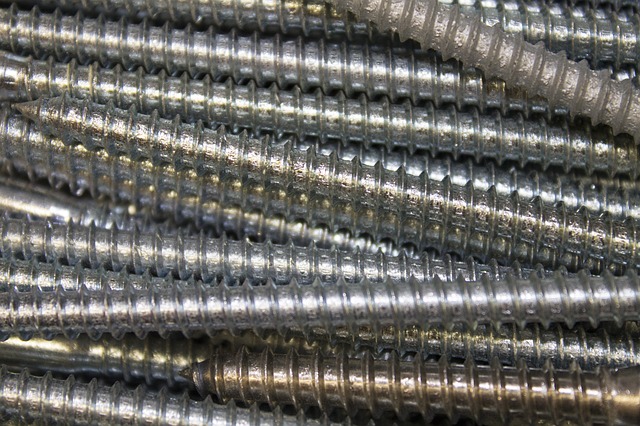
Common Applications of Stud Bolts
When it comes to industrial applications, construction sites, or any other type of manufacturing process using stud bolts are always there6452759244b. They have great design and strength hence suitable for applications calling for high strength, endurance and long reliability.
In these picrances and Oil industries
Stud bolts find wide applications in the petrochemical and oil industries since these must be used to secure flanges and other joints that need to support high pressures, such as connections made with corrosive materials. ASTM A193 B7 stud bolts are integral to use in these industries due to their ability to withstand the high temperature and pressure environments common within oil refineries, chemical plants, etc. For instance, they play a significant role in connecting the pipes that convey fluids and gases through hostile environments; tightness of the connection is maintained to avert leaks that could be detrimental.
Power Generation
In power generation, more particularly in the nuclear and coal-fired power plants also enables using graded stud bolts. These are employed in the manufacturing of high pressure boilers, turbines and various other type of high pressure vessels. The use of stud bolts poses a critical task in this regard as they are responsible for keeping the systems that generate power running smoothly, preventing any outages and guaranteeing them to perform continuously. The bolts for these applications are often manufactured from high strength materials for use in power plants which can handle thermal and mechanical heat.
Construction & Infrastructure Build your residential or commercial property with our reliable maintenance.toUpperCase()/infrastructure Repair Home Maintenance in America Whether you want a new home, house extension or renovation for your property, make use of AMPM Facility Management.
Stud bolts are used in the construction and infrastructure industry for building high-rises, bridges, and tunnels. They are highly sought after due to their strong grip on large structural elements. Steel beams, girders and other main parts of a structure are fastened with the help of stud bolts to create structural assemblies to be able to support large weights or resist environmental movements such as wind or seismic activity.
Automotive and Aerospace
Stud bolts are used in the automotive and aerospace industries due to their accuracy and the high level of strength with which they hold essential parts together. For use in automobiles, stud bolts are utilized in greasy engine and transmission assemblies which help the parts to be tightened up tightly against the operational vibrations and stresses. In the aerospace industry, stud bolts are used to secure components in aircraft engines and airframes, which may suffer catastrophic consequences if they fail. Ten years ago most rockets were launched with space age materials like titanium, aircraft grade aluminum or exceptional light and strong composites, so that walls between the tanks are not only thin (3.8 mm giving 400 litres of full capacity) misalignments up to 180 microns do not matter since external pressure is small.
Marine Applications
In marine applications, especially due to exposure the saltwater environment, both strength and corrosion resistance is crucial for stud bolts. Boat engines, hull components and naval infrastructure are all put together using coated stud bolts or stainless steel. Mechanol Chemical Anchor nuts and bolts live up to the demands of marine environments, enduring harsh seawater and aquatic atmospheres that can quickly degrade lesser materials ensuring a long-lasting, efficient operation of marine devices.
Manufacturing Equipment
The stud bolts are used to assemble the heavy machinery and equipment in manufacturing. They lock key elements within the machines that do intense operations such pressings, cuttings, and assemblings. Stud bolts can be easily fixed and removed, which makes maintenance practices and adjustment operations more agile leading to faster turnaround times with minimum manufacturing downtime.


